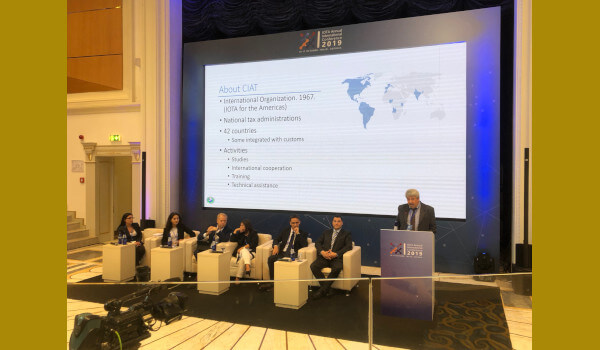Shared experiences at the IOTA International Annual Conference

I was fortunate to participate in the IOTA Annual International Conference that this year focused on technology issues, including a showroom of successful solutions used in tax administrations. The event reminds us of our technology meeting in Miami a couple of years ago, and the obligation we have to repeat as soon as possible.
I made a presentation on electronic invoicing in Latin America in a panel on information reporting, in which I focused, supported by some elements of the seventh art, in some conclusions of the implementation of the invoice in our countries, and which I will relate later.
For now, I wish to share some very interesting initiatives related to third-party statements and information, and something else.
The Norwegian Tax Administration is implementing a pre-filled declaration based on dialogues. There are several tax administrations that offer partial or complete pre-filled returns to taxpayers, particularly in the personal income tax, including some Latin American ones. The novelty here is that the process is based on dialogues that the system poses to the taxpayer. Geir Hegre Romundset of the Norwegian Tax Administration provided a couple of examples. In the process of filling out the declaration, the system offers the following dialog: “we have noticed that you have a second property, perhaps you are renting it?”, or asks you the following: “we have noticed that you report more than n days out of your home for work trips. It’s a pretty high value, are you sure it’s right?”. According to the presentation, 72 percent of taxpayers found the statement simpler than the previous one and more than half of taxpayers accepted it unchanged.
In Sweden, the Tax Administration is in the process of implementing a new control mechanism, something like “compliance by design”. With a more externalized digitalization orientation, it plans to incorporate tax elements as part of the transactions themselves. Even more, the ability to audit business using “proxies” so that, in place of taxpayers to send information to the tax administration, the information remains in the information systems of the companies, but the tax administration has access to them through APIs. The administration cooperates with software companies that offer their ERP products and other accounting solutions to incorporate the mechanism into their systems. When Eric Thoren of the Swedish Tax Office was asked by the public if taxpayers will not complain about having the administration “within” their systems, he replied that taxpayers will probably be satisfied of not having to send information to the administration.
In the solutions exhibition room, the HMRC presented an application for a virtual sweep (or combing) of streets. A reimagined version of that traditional scheme of going out on the streets to see that business operations are formal and meet the different obligations, including registration and invoicing. The application presented here works as a typical computer map, only that instead of showing restaurants, hotels and Historic Places to visit in an area of the city, it presents the risky premises located in different sectors, with the support of numbers and colors. By extending the map into specific sections the indication is extended to occasionally reach a single building. Sources of information to identify the risk may be of different types, including payments, reported product deliveries, housing income and other signs of economic activity.
The winning solution was from the Georgian Tax Administration. A mobile application for Android systems that allows the administration officials to consult taxpayer’s information while they are visiting, including the ability to register in the act for identified non-compliance, a solution more interesting for the administrations of Latin America that implement regimes of intermediaries.
Congratulations to IOTA for organizing the event, and especially to the Georgian administration for the welcome they gave us. Next year CIAT and IOTA will not hold their annual technical conferences. Together with the rest of the organizations that make up NTO, and the Organization of the Guardia di Finanza of Italy, they will hold jointly a World event.
Greetings and good luck.
2,226 total views, 2 views today
